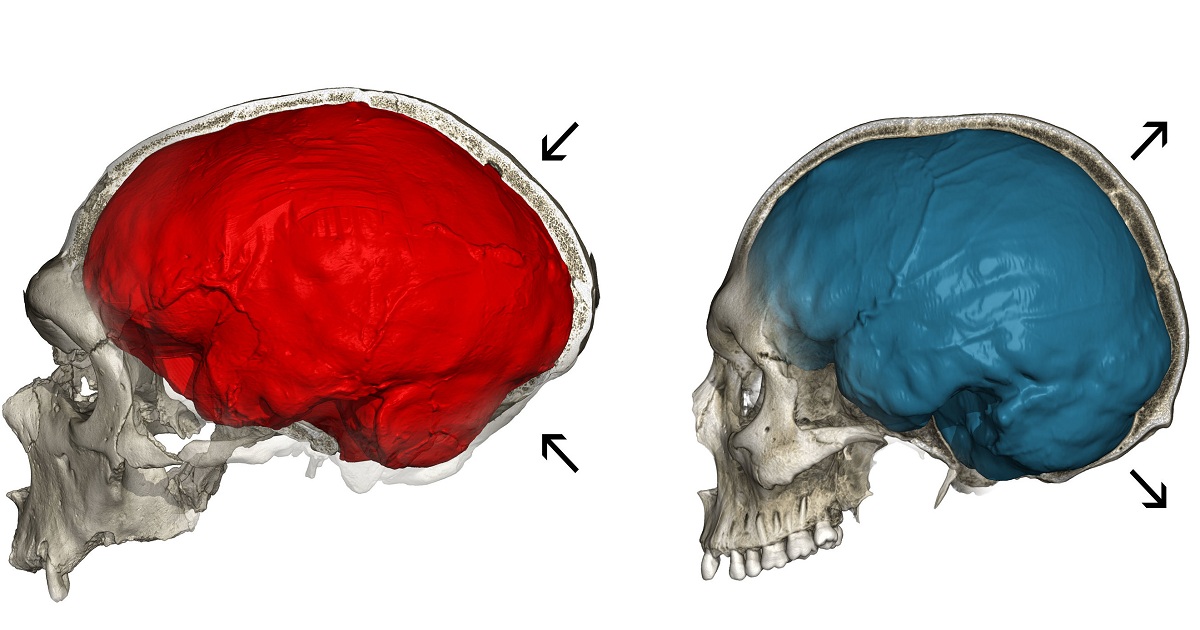Neandertal genes shed light on unique aspects of the modern human brain
Phys.org | December 13, 2018

A characteristic feature of modern humans is the unusually round skull and brain, in contrast to the elongated shape seen in other human species. By studying Neandertal DNA fragments found in the genomes of living Europeans, scientists have now discovered genes that influence this globular shape. An interdisciplinary research team, led by the Max Planck Institutes for Psycholinguistics and Evolutionary Anthropology, brought together fossil skull data, brain imaging, and genomics, as reported in Current Biology. Modern human skulls have a unique 'globular' (round) shape. Our closest cousins, the long-extinct Neandertals, had the elongated skulls that are typical of most primates. This striking shape difference is suspected to reflect evolutionary changes in the relative sizes of structures of the human brain, perhaps even in the ways that key brain areas are connected to each other. However, brain tissue doesn't itself fossilize, so the underlying biological explanation has remained elusive.
An international research team, led by paleoanthropologist Philipp Gunz (MPI, Leipzig) and geneticists Simon Fisher and Amanda Tilot (MPI, Nijmegen), developed a new strategy to investigate this question. The team combined analysis of fossil skulls, ancient genome sequence data and brain imaging. "Our aim was to identify potential candidate genes and biological pathways that are related to brain globularity," says Tilot. To focus their search, they took advantage of the fact that living humans with European ancestry carry rare fragments of Neandertal DNA buried in their genomes, as a result of interbreeding between Neandertals and the ancestors of modern Europeans. Different people carry different fragments, which are scattered through the genome.